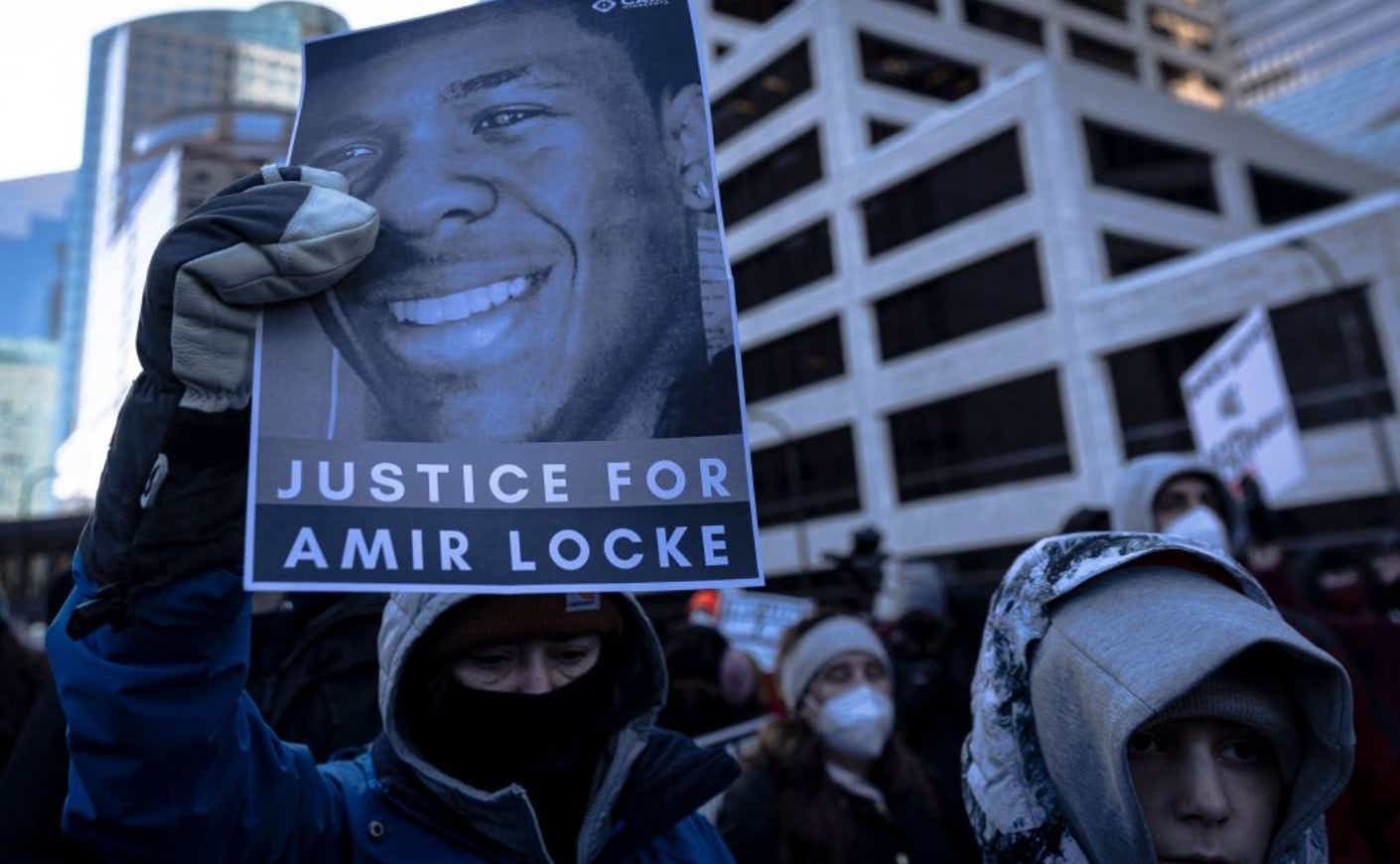The deadly shooting of a 22-year-old Black man last week by Minneapolis police is sparking public outcry. A caravan of approximately 50 vehicles organized by racial-justice groups drove through the city on Sunday night. They gathered outside what's believed to be the home of interim Police Chief Amelia Huffman, demanding justice for the death of Amir Locke, and calling for her resignation.
“We’re asking for her job,” activist Toussaint Morrison said over a microphone outside the home, “because it seems like the only time they pay attention is when it affects their jobs or their money. But we pull up when it affects our lives.”
This isn’t the first time demonstrators have taken to the streets to protest Locke’s death. Hundreds gathered in downtown Minneapolis on Saturday chanting, "Amir Locke!" and holding up signs with his name. At the time of his death, Locke was an entrepreneur who had an interest in pursuing a career in the music industry.
We have the latest developments, including details on the arrest of a suspect in the homicide case that led to Locke being fatally shot.
What happened to Amir Locke?
A SWAT team serving a no-knock search warrant burst into an apartment where Locke appeared to be asleep on a couch under a blanket. Police body cam footage shows him holding a gun and trying to sit up as officers enter the room, and he was shot less than 10 seconds later.
The police chief said that as soon as officers saw the gun, they had to “make a split-second decision,” but Locke’s parents say their son wasn’t given a chance, and that he had reached for his gun out of confusion.
“My son was executed on 2/2 of ‘22,” Locke’s mother Karen Wells said at a news conference on Friday. “And now his dreams have been destroyed.”
Locke's parents emphasized that their son had no criminal record, and had obtained the gun lawfully. He also wasn't wasn't named in the search warrant that prompted police stormed into the apartment in the first place. As it turns out, the police were pursuing his cousin.
Minnesota police confirmed Tuesday that they arrested that unnamed 17-year-old in connection with the murder of a father of two children. While the motives remain unclear, court documents cite surveillance video showing the teen getting out of a Mercedes-Benz with another person and approaching the victim's vehicle before "a loud gunshot was heard," and a witness saw him flee the scene to the apartment building where Locke was staying.
How is Locke’s family responding?
His parents hired civil rights attorneys Ben Crump and Jeff Storms. If those names sound familiar, it’s because they won the $27 million settlement between the city of Minneapolis and George Floyd’s family following his murder by police officer Derek Chauvin.
“Amir had the RIGHT as a law-abiding, legal gun owner to use his firearm in self-defense, yet the police still shot a man who had his WHOLE life ahead of him!” Crump posted to Twitter on February 4th.
Have the police faced any consequences?
The officer and SWAT member who fired the fatal shots has since been placed on administrative leave until the Minneapolis Police Department completes an internal investigation into the incident. The case is also under state review, and Attorney General Keith Ellison will work with the Hennepin County Attorney's Office to look into Locke's death.
Amid these pending investigations, Minneapolis Mayor Jacob Frey has temporarily halted no-knock warrants and vowed to talk with the experts who helped craft Breonna's Law, which limited the use of no-knock warrants in Kentucky. That law was named after Breonna Taylor, who was shot and killed by police officers during a no-knock raid in 2020.
Locke’s killing has subsequently prompted new scrutiny on the state’s no-knock warrant laws. Minnesota lawmakers are expected to soon start debating the move to these warrants, after legislators had previously placed restrictions on the controversial practice just last year.
"When we look at the moment that we are in right now and the way no-knock warrants were used in this situation with Amir Locke, we recognize that nine seconds is not enough time for anybody to properly respond in the way law enforcement would like them to," Democratic Rep. Athena Hollins told the Star Tribune.









